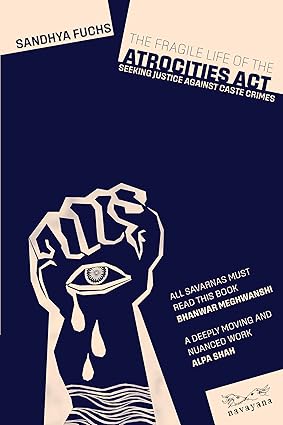The Fragile Life of the Atrocities Act
Sandhya Fuchs is Assistant Professor of Criminology at the University of Bristol.
Ragu, a Dalit, meets Karishma, a Brahmin, in college in Jaipur. They fall in love and marry in secret. They have a child. The girl’s parents invite them home, beat Ragu up, and throw him in a sewage canal. He’s rescued and admitted to a hospital. He receives a text from Karishma that says she’s divorcing him. A broken Ragu kills himself, coming under a running train. For his parents, this is murder. They fight for justice using the Atrocities Act.
The Prevention of Atrocities Act of 1989 marks an important turn in tackling hate crimes in India. But availing this law entails fighting an entire legal and state apparatus that is bent on subverting justice. Sandhya Fuchs, a European raised in India, adopted by the Dalit families she works with, spends time with cases filed under the Act in Rajasthan. The term ‘case’ disguises personal stories of loss, trauma, determination, and hope for a future free from inequality, hate, and violence.
The Fragile Life of the Atrocities Act lays bare the minute ways in which survivors, activists, and legal aid NGOs unlace and rearrange the structural allegiance of India’s criminal legal system to Savarna worldviews: a system that holds the Atrocities Act, and thousands like Ragu–Karishma, captive.
... Read more Read less










